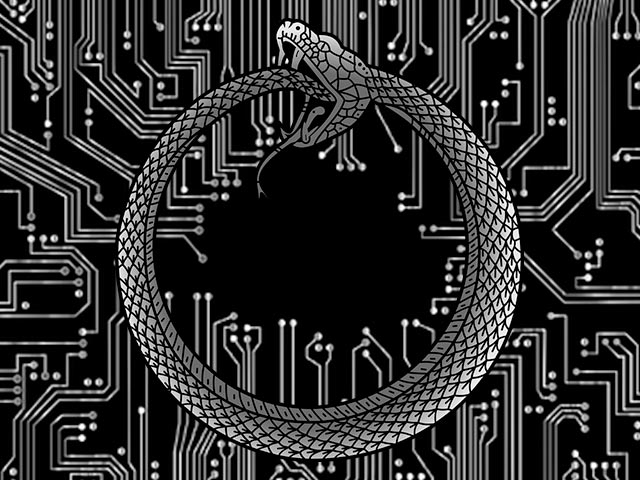AI-generated content is becoming ubiquitous on the internet, raising concerns for the future of AI models. Models like ChatGPT are trained using online content, giving rise to the issue of “model collapse” as synthetic content proliferates. In the AI era, the ancient symbol of a snake consuming its own tail, the ouroboros, takes on new meaning.
As AI-created content saturates the internet, errors accompany it, creating a cycle where AI trains on flawed data, risking “model collapse.” This inadvertent training on error-filled, synthetic data can result in the generation of nonsensical and error-ridden content.
The recursive feedback loop, termed “model collapse,” poses a threat to the coherence of AI-generated information. Studies, such as one using the language model OPT-125m, indicate that repeated training on synthetic data can lead to responses filled with errors and peculiar fixations, such as an unusual focus on jackrabbits.
AI image generators trained on AI art exhibit blurry and unrecognizable results, raising concerns about biases. This recursive loop has the potential to amplify racial and gender biases, as evidenced in instances where AI, like ChatGPT, exhibits profiling behaviors.
To train effective AI models, uncorrupted data is crucial, necessitating a focus on filtering out synthetically created information. Alex Dimakis emphasizes that filtering is a significant research area, impacting the quality of AI models. Despite the potential of AI, a human touch is essential to ensure that models aren’t inadvertently trained on data they generated themselves.
Quality data, even in smaller quantities, is emphasized over larger synthetic datasets, highlighting the need for meticulous data filtering. Acknowledging human data flaws, efforts are underway to use AI to de-bias datasets, aiming for better-quality information. Engineers play a crucial role in sifting through data to prevent AI reliance on self-generated synthetic data.
For more information, view the Popular Mechanics Article

